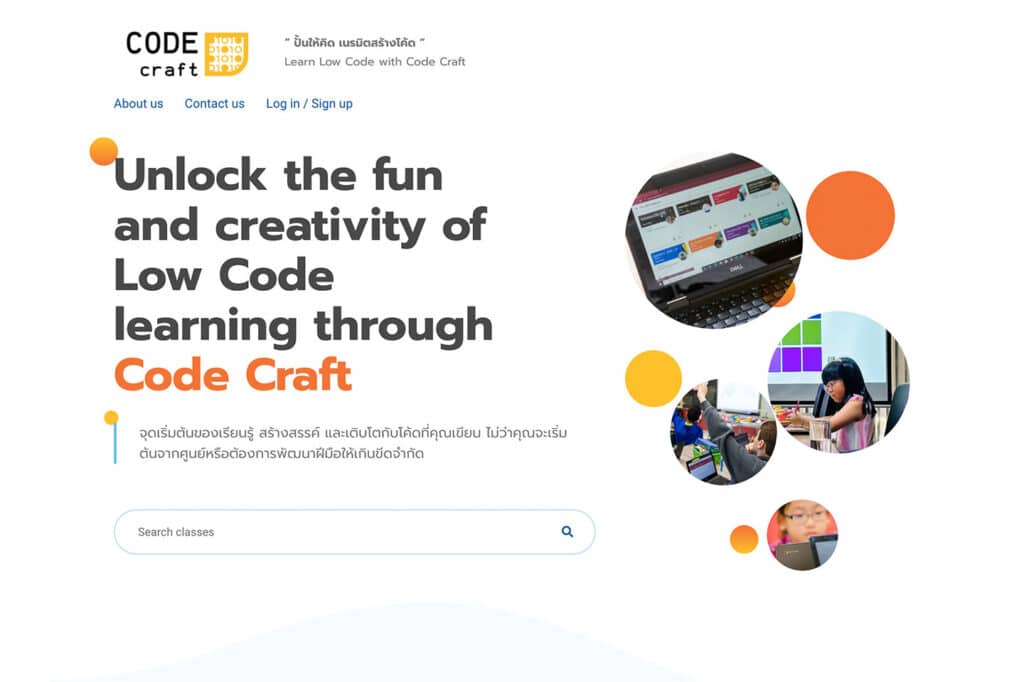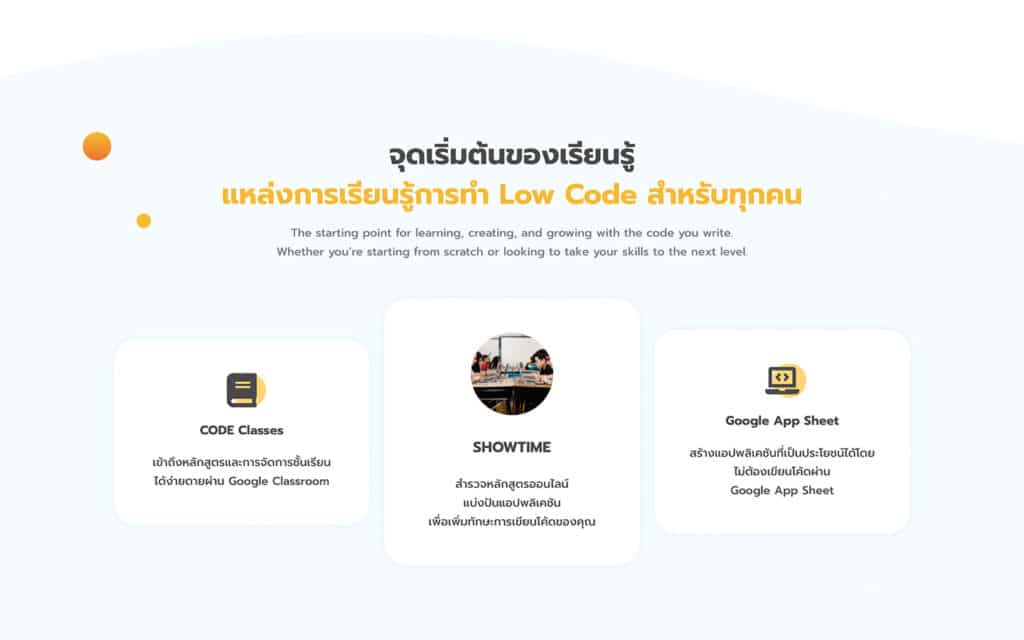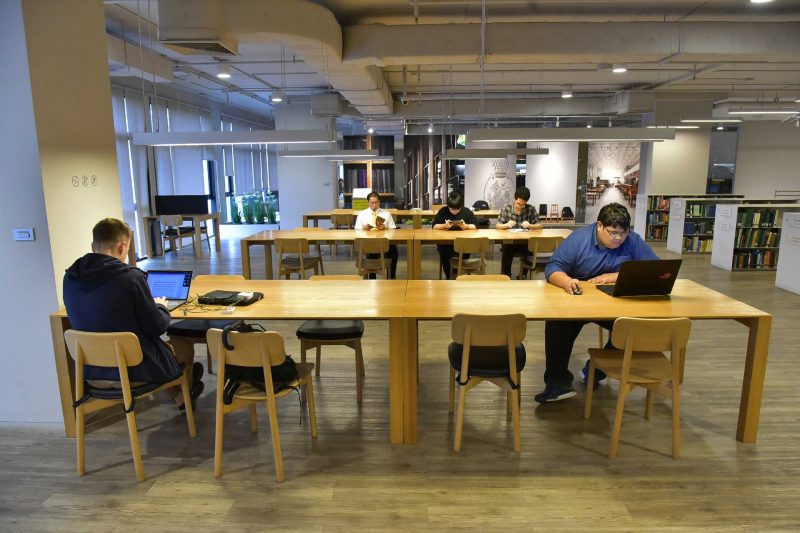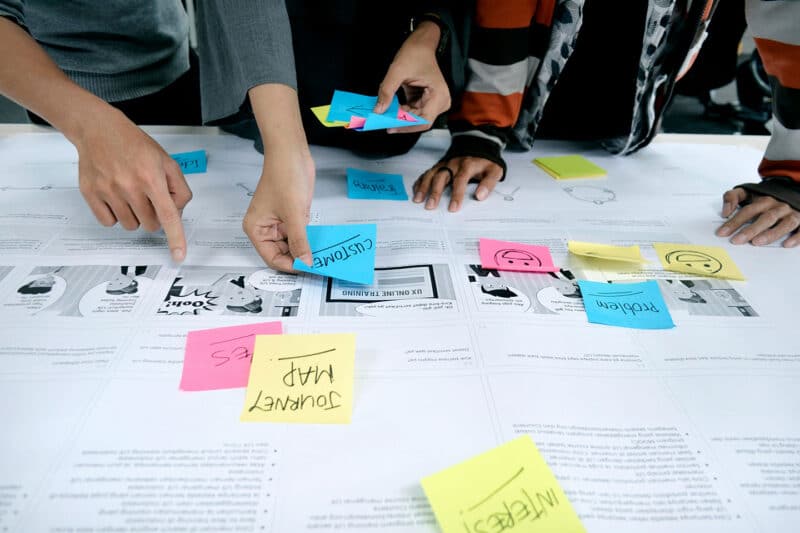Code Craft: A Design Thinking Coding Playground
“Code Craft is a design thinking-based coding platform that enhances computational thinking and digital literacy for Thai university students. By integrating low-code tools, AI-powered assistance, and gamified elements, it creates an engaging, flexible learning environment for both in-class and independent study.
The platform guides students through a five-phase design process—Discovery, User Analysis, Ideation, Prototyping, and Evaluation—allowing them to develop real-world applications based on their interests. This hands-on, user-centered approach fosters not only technical skills but also critical thinking, creativity, and teamwork. Students receive real-time feedback and engage in peer collaboration as they iteratively refine their projects.
Statistical results show significant improvements in computational thinking (p<0.001) and digital literacy. Students report high satisfaction with the platform’s flexible and gamified structure, finding it an enjoyable and accessible way to learn. With its proven impact, Code Craft effectively prepares students for the digital economy, demonstrating strong potential for expansion and commercialization.”

Problem
As coding becomes an essential skill for the modern workforce, the need to develop these skills among Thai university students, particularly in the Eastern Economic Corridor (EEC), is growing. There is an increasing demand for platforms that can equip students with the necessary digital and coding skills for the evolving labor market.
Solution
Code Craft (https://codecraft.edii.in.th) is a coding playground powered by design thinking. It empowers students to build low-code apps aligned with their passions. With AI-enhanced assistance and gamified challenges, learning becomes engaging and flexible. Learners explore real-world problems, ideate solutions, and create working prototypes. Computational thinking and Digital literacy grow through hands-on, user-centered design.
Code Craft Model Components
The model focuses on four key components to empower students’ computational thinking and digital literacy:
- Coding Fostering: Students build coding proficiency through low-code environments, enabling them to create applications that align with their personal interests.
- Online Assistance: The platform supports multiple learning modalities, including synchronous, asynchronous, and on-demand access for reinforcement and activity participation.
- Digital and AI Tools: Integrates Gemini Pro AI, offering intelligent support for code development while enhancing digital literacy.
- Enjoyment: Gamification principles are embedded in the learning process, motivating students through engaging, interactive challenges.
Learning Practices with Code Craft
The learning process follows five stages designed to support the Code Craft model:
- Discovery Phase: Students conduct exploratory research to identify challenges and topics that align with their interests.
- User Analysis: Learners analyze target users’ needs, which are key to developing their projects.
- Ideation Workshop: Collaborative sessions help students define key features and requirements for their applications.
- Prototype Development: Students create applications using low-code platforms like Google AppSheet, showcasing their results on the Code Craft platform.
- Evaluation and Refinement: Students test their solutions, present outcomes in the “Showcase” section, and receive peer feedback. Instructors use a rubric to evaluate computational thinking and digital literacy.
Findings
The study used a one-group time-series evaluation with pre-and post-assessments over 8 weeks (3 hours weekly). Key findings include:
- Improvement in Computational thinking: Statistical analysis showed a significant increase in Computational thinking (p < 0.001), with marked progress throughout the program.
- User Satisfaction: Participants reported high satisfaction with the platform. Notable comments included “Code Craft allows you to learn anytime, anywhere” (4.78/5) and “The platform promotes flexibility in learning” (4.78/5). Overall platform appropriateness and clear instructions were also highly rated (4.74/5).
The results indicate the platform’s effectiveness in enhancing computational thinking and digital literacy while offering flexible and engaging learning experiences.

By Faculty of Education, Chulalongkorn University with the support by National Science, Research and Innovation Fund (NSRF) under the Thailand Science Research and Innovation (TSRI)
Others
Chulalongkorn Libraries Leap Forward for Learning
Multiple media choices, new digital platforms and 24-hour availability





